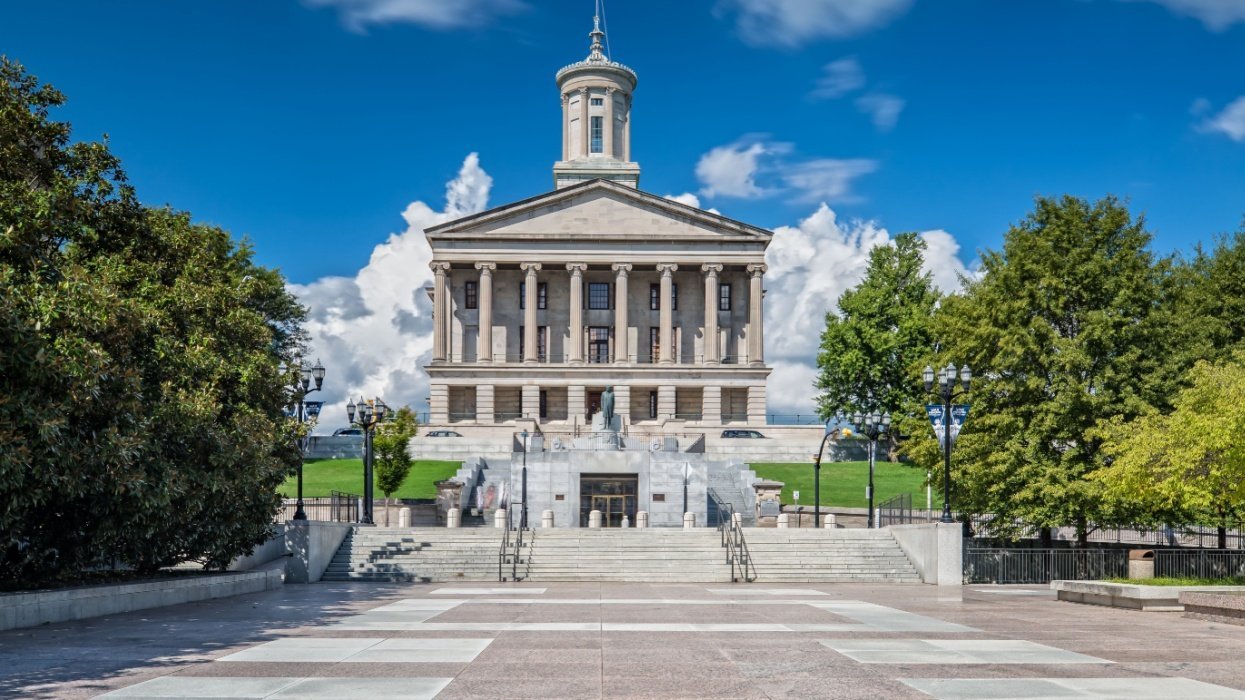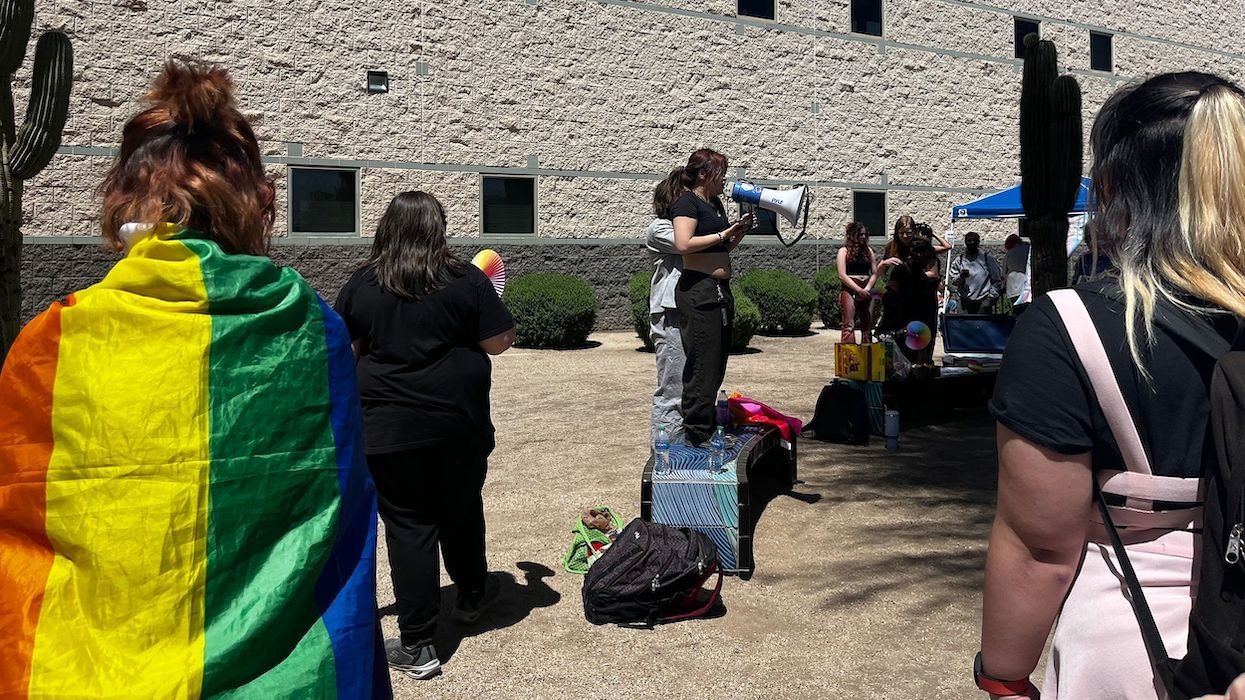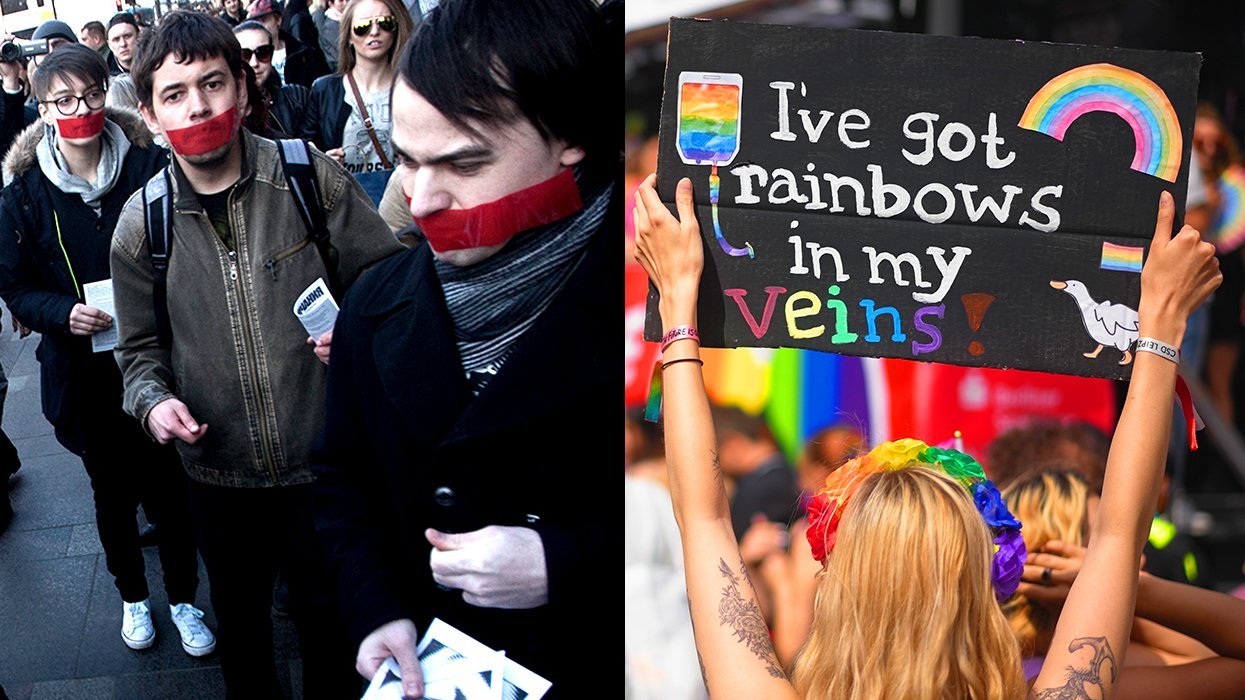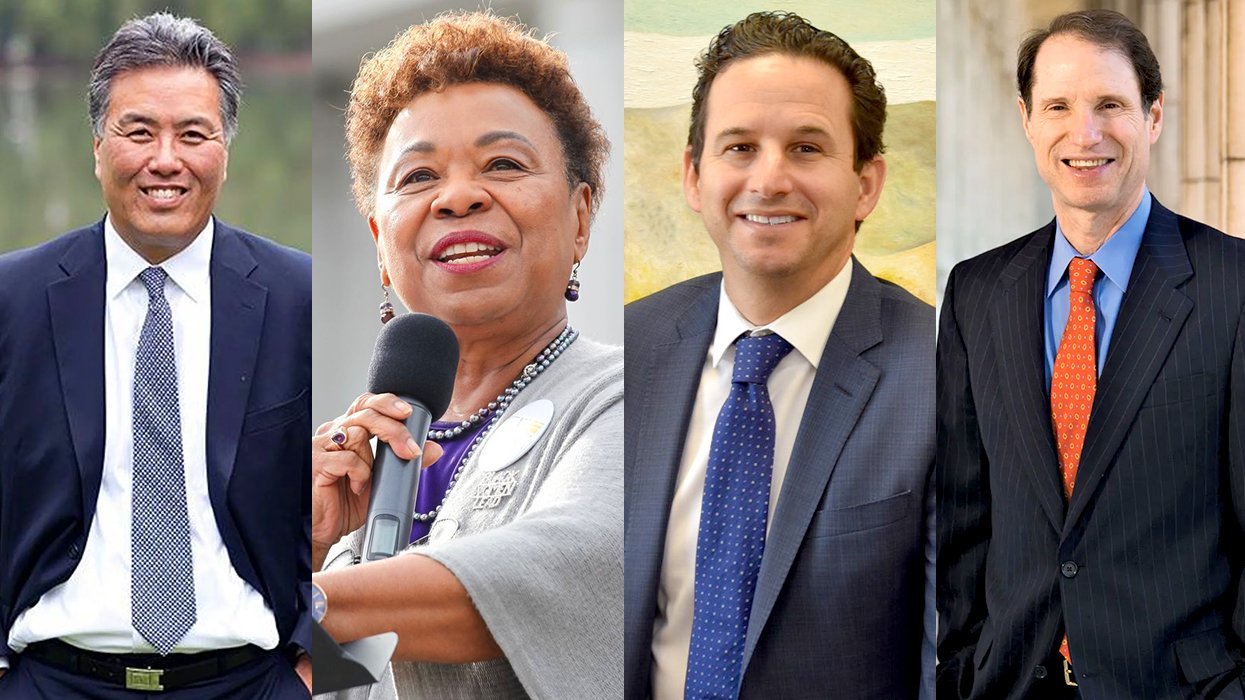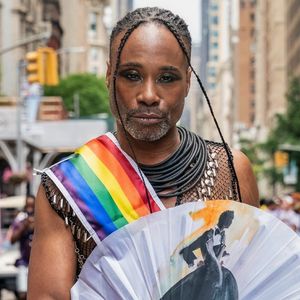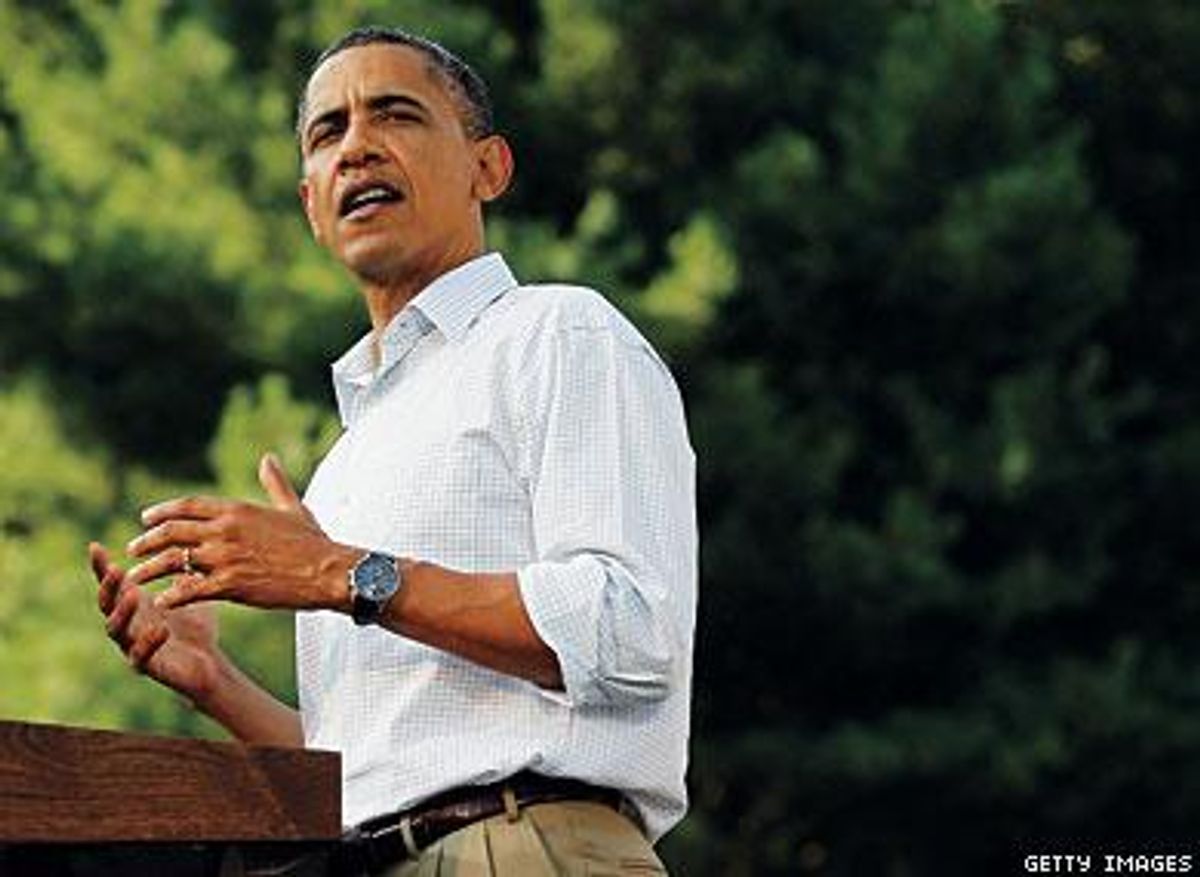
CONTACTStaffCAREER OPPORTUNITIESADVERTISE WITH USPRIVACY POLICYPRIVACY PREFERENCESTERMS OF USELEGAL NOTICE
© 2024 Pride Publishing Inc.
All Rights reserved
All Rights reserved
By continuing to use our site, you agree to our Private Policy and Terms of Use.
From the November Print Issue
Certainty, as the Elizabethan-era judge Edward Coke proclaimed centuries ago, "is the mother of quiet and repose." It's also what married binational gay couples have been fighting for in this country and in this century -- many in a very public way since the Obama administration decided in February that it would no longer defend the Defense of Marriage Act, the barrier to citizen sponsorship privileges for gay couples. Not knowing whether an upcoming mandatory visit to an Immigration and Customs Enforcement field office will result in an order to leave the country is perhaps uncertainty at its cruelest, as Brian Andersen and his Indonesian-born husband, Anton Tanumihardja, have recently faced.
Tanumihardja is one of about 300,000 individuals with cases pending during an era of record deportations -- some of violent felons and drug dealers, but also of non-criminals who have families stateside, some who were profiled in a recent Frontline report by Maria Hinojosa. Judging by the guidance issued over the summer from Secretary of Homeland Security Janet Napolitano and top immigration officials, Tanumihardja's is a model "low-priority" deportation case: He has no criminal record, is married to an American spouse, has "ties and contributions to the community," and is of a national origin that "renders removal unlikely" (Indonesia not being known for a safe environment for openly LGBT people). But during an October meeting at ICE's Philadelphia office, Tanumihardja was denied a request for what's known as deferred action in his case. He was ordered to return to the local branch on January 13 for another appearance.
An ICE spokeswoman described the decision as a "stay of removal" pending a motion to reopen Tanumihardja's case. Lavi Soloway, the couple's attorney, didn't see it that way. "By rejecting his request for deferred action, ICE has refused to provide meaningful, long-term protection for Anton and Brian despite the fact that Anton clearly meets the criteria for this relief, and despite the Obama administration's stated commitment to protecting same-sex binational couples facing deportation," Soloway said. "ICE should reconsider its decision and grant deferred action so that Brian and Anton are not torn apart." It's yet to be seen how DHS will handle cases of binational gay couples as it begins an exhaustive review of deportation cases: Secretary Napolitano told the Senate Judiciary Committee in an October hearing that the review will begin in a few weeks in some cities.
Whether faced with imminent deportation or simply treated unjustly by the immigration system, countless same-sex couples have endured immigration uncertainty; many of their stories are harrowing, as any reporter covering the issue soon finds out. In 2009, The Advocate spoke with an American citizen who has stayed in Saudi Arabia for more than 20 years with his Saudi partner rather than face the possibility of living apart (the couple have separate, side-by-side condos with a discreet interior hallway connecting the two to quell any suspicion about their relationship among neighbors). Last year this magazine interviewed Roi Whaley, a retired casino worker in Mississippi who has terminal cancer. He married his Filipino husband, Aurelio Tolentino, in 2010 and has fought to keep his spouse, who is also his primary caretaker, in the country. The two even shared a FEMA trailer after Hurricane Katrina destroyed their home in 2005. Whaley laughed off what some might consider a truly unfortunate circumstance. "We were perfectly happy living in the little trailer. It was small, but it was home, and we were together. So it didn't matter where we lived." Monica and Cristina, Sujey and Violeta, Josh and Henry--all have faced the specter of a last goodbye, a one-way plane ticket, and a 10-year ban on returning to the United States for a non-citizen partner or spouse. How immigration officials will evaluate cases like theirs will be a historical testament to how the administration truly regards LGBT families.
And then there are those whose relationships were torn apart before the administration's DOMA announcement. Five days before Obama signed into law the repeal of "don't ask, don't tell" in December, Richard Dennis of Jersey City, N.J., saw Jair Izquierdo, his partner of six years, board a plane back to Lima, Peru, after attempts to keep him in the U.S. failed. Dennis continues to fight and has appealed a previous denial of an asylum claim for his partner (an immigration court is now reconsidering the matter).
"This is the first positive step in this case," Dennis says. "We're heartened, but our treatment in the past has been anything but understanding."
Certainty, as the Elizabethan-era judge Edward Coke proclaimed centuries ago, "is the mother of quiet and repose." It's also what married binational gay couples have been fighting for in this country and in this century -- many in a very public way since the Obama administration decided in February that it would no longer defend the Defense of Marriage Act, the barrier to citizen sponsorship privileges for gay couples. Not knowing whether an upcoming mandatory visit to an Immigration and Customs Enforcement field office will result in an order to leave the country is perhaps uncertainty at its cruelest, as Brian Andersen and his Indonesian-born husband, Anton Tanumihardja, have recently faced.
Tanumihardja is one of about 300,000 individuals with cases pending during an era of record deportations -- some of violent felons and drug dealers, but also of non-criminals who have families stateside, some who were profiled in a recent Frontline report by Maria Hinojosa. Judging by the guidance issued over the summer from Secretary of Homeland Security Janet Napolitano and top immigration officials, Tanumihardja's is a model "low-priority" deportation case: He has no criminal record, is married to an American spouse, has "ties and contributions to the community," and is of a national origin that "renders removal unlikely" (Indonesia not being known for a safe environment for openly LGBT people). But during an October meeting at ICE's Philadelphia office, Tanumihardja was denied a request for what's known as deferred action in his case. He was ordered to return to the local branch on January 13 for another appearance.
An ICE spokeswoman described the decision as a "stay of removal" pending a motion to reopen Tanumihardja's case. Lavi Soloway, the couple's attorney, didn't see it that way. "By rejecting his request for deferred action, ICE has refused to provide meaningful, long-term protection for Anton and Brian despite the fact that Anton clearly meets the criteria for this relief, and despite the Obama administration's stated commitment to protecting same-sex binational couples facing deportation," Soloway said. "ICE should reconsider its decision and grant deferred action so that Brian and Anton are not torn apart." It's yet to be seen how DHS will handle cases of binational gay couples as it begins an exhaustive review of deportation cases: Secretary Napolitano told the Senate Judiciary Committee in an October hearing that the review will begin in a few weeks in some cities.
Whether faced with imminent deportation or simply treated unjustly by the immigration system, countless same-sex couples have endured immigration uncertainty; many of their stories are harrowing, as any reporter covering the issue soon finds out. In 2009, The Advocate spoke with an American citizen who has stayed in Saudi Arabia for more than 20 years with his Saudi partner rather than face the possibility of living apart (the couple have separate, side-by-side condos with a discreet interior hallway connecting the two to quell any suspicion about their relationship among neighbors). Last year this magazine interviewed Roi Whaley, a retired casino worker in Mississippi who has terminal cancer. He married his Filipino husband, Aurelio Tolentino, in 2010 and has fought to keep his spouse, who is also his primary caretaker, in the country. The two even shared a FEMA trailer after Hurricane Katrina destroyed their home in 2005. Whaley laughed off what some might consider a truly unfortunate circumstance. "We were perfectly happy living in the little trailer. It was small, but it was home, and we were together. So it didn't matter where we lived." Monica and Cristina, Sujey and Violeta, Josh and Henry--all have faced the specter of a last goodbye, a one-way plane ticket, and a 10-year ban on returning to the United States for a non-citizen partner or spouse. How immigration officials will evaluate cases like theirs will be a historical testament to how the administration truly regards LGBT families.
And then there are those whose relationships were torn apart before the administration's DOMA announcement. Five days before Obama signed into law the repeal of "don't ask, don't tell" in December, Richard Dennis of Jersey City, N.J., saw Jair Izquierdo, his partner of six years, board a plane back to Lima, Peru, after attempts to keep him in the U.S. failed. Dennis continues to fight and has appealed a previous denial of an asylum claim for his partner (an immigration court is now reconsidering the matter).
"This is the first positive step in this case," Dennis says. "We're heartened, but our treatment in the past has been anything but understanding."
Want more breaking equality news & trending entertainment stories?
Check out our NEW 24/7 streaming service: the Advocate Channel!
Download the Advocate Channel App for your mobile phone and your favorite streaming device!
From our Sponsors
Most Popular
Here Are Our 2024 Election Predictions. Will They Come True?
November 07 2023 1:46 PM
17 Celebs Who Are Out & Proud of Their Trans & Nonbinary Kids
November 30 2023 10:41 AM
Here Are the 15 Most LGBTQ-Friendly Cities in the U.S.
November 01 2023 5:09 PM
Which State Is the Queerest? These Are the States With the Most LGBTQ+ People
December 11 2023 10:00 AM
These 27 Senate Hearing Room Gay Sex Jokes Are Truly Exquisite
December 17 2023 3:33 PM
10 Cheeky and Homoerotic Photos From Bob Mizer's Nude Films
November 18 2023 10:05 PM
42 Flaming Hot Photos From 2024's Australian Firefighters Calendar
November 10 2023 6:08 PM
These Are the 5 States With the Smallest Percentage of LGBTQ+ People
December 13 2023 9:15 AM
Here are the 15 gayest travel destinations in the world: report
March 26 2024 9:23 AM
Watch Now: Advocate Channel
Trending Stories & News
For more news and videos on advocatechannel.com, click here.
Trending Stories & News
For more news and videos on advocatechannel.com, click here.
Latest Stories
Tennessee Senate passes bill making 'recruiting' for trans youth care a felony
April 14 2024 11:17 AM
Italy’s prime minister says surrogacy ‘inhuman’ as party backs steeper penalties
April 14 2024 10:36 AM
After decades of silent protest, advocates and students speak out for LGBTQ+ rights
April 13 2024 10:52 AM
11 celebs who love their LGBTQ+ siblings
April 13 2024 10:33 AM
The 10 most challenged books of last year
April 13 2024 10:06 AM
Mary & George's Julianne Moore on Mary's sexual fluidity and queer relationship
April 13 2024 10:00 AM
Investigation launched after man screams homophobic slurs at queer couples on D.C. metro
April 13 2024 9:59 AM
Germany makes it easier to change gender and name on legal documents
April 12 2024 6:06 PM
A youth's call to action on this Day of NO Silence
April 12 2024 5:00 PM
Democrats introduce resolution in support of LGBTQ+ youth
April 12 2024 4:35 PM
Colton Underwood is hoping to create a gay reality TV dating show
April 12 2024 4:28 PM
Trending stories
Most Recent
Recommended Stories for You




















